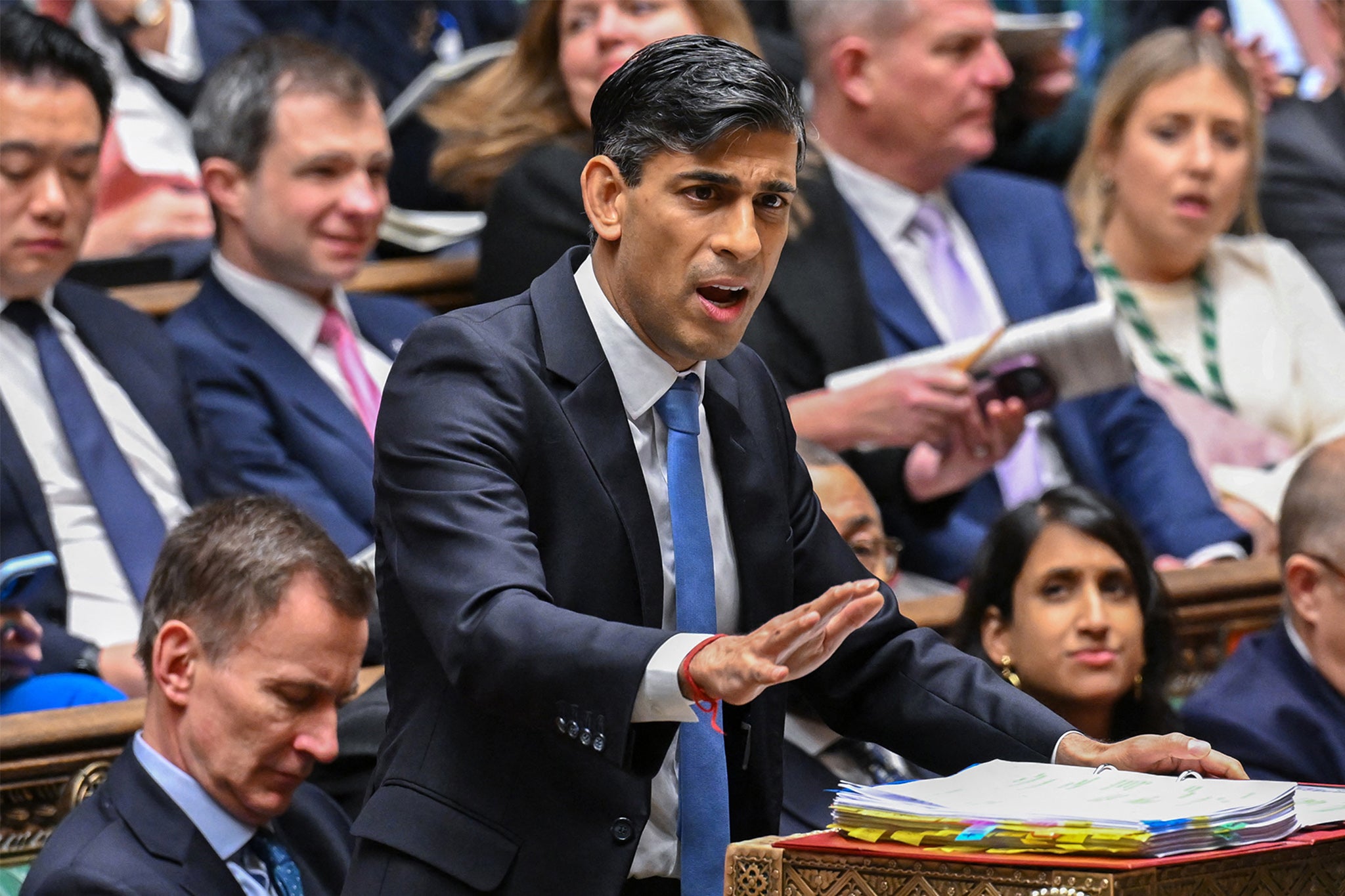Does the government need parliament’s approval to take military action?
Tony Blair secured approval from MPs for his Iraq invasion, but do prime ministers need to seek backing from parliament at all? Sean O’Grady looks at the precedents...


Britain’s decision to take military action against Houthi forces in Yemen is one that is fraught with geopolitical, moral and legal arguments. Perhaps the most immediate is whether the government is required to seek prior parliamentary approval for such action. After all, the lives of British service personnel – and possibly, ultimately, of British civilians – are at stake.
Rishi Sunak called a cabinet meeting, and he also briefed the Labour leader, Keir Starmer; the shadow defence secretary, John Healey; and the House of Commons speaker, Lindsay Hoyle – but that was the limit of his consultations. (Presumably Sunak also briefed the King.) Other opposition figures were excluded from the process. The Liberal Democrats, Scottish National Party and Plaid Cymru are demanding that parliament – on recess until Monday – be recalled immediately, and Hoyle indicated he would assist with that. No 10, however, says there will be no retrospective vote on the airstrikes. The question of the role of the Commons in approving acts of war, therefore, remains live.
Can Sunak take Britain to war without a parliamentary vote?
Any prime minister can do so, because such a move is a crown prerogative power and thus perfectly constitutional. As with many other prerogatives, it has been “inherited” by elected prime ministers from monarchs, who have used it down the centuries without much democratic interference. In practice, it tends to be used in cases where delays would defeat the whole purpose of a military decision; the most obvious example would be the deployment of nuclear weapons in response to an equivalent attack, something that has to be done in minutes rather than days or hours.
Could Sunak have called a vote in advance?
No, in the sense that the gap between taking the decision and bombing Yemen was very short and largely determined by the United States. Yes, in the sense that the possibility of retaliation against the Houthis has been on the cards for weeks.
Isn’t there a modern convention that parliamentary approval is required?
Ever since Tony Blair permitted the Commons a vote on a motion approving the proposal that his government “should use all means necessary to ensure the disarmament of Iraq’s weapons of mass destruction” (ie launch an invasion) in 2003, it has been assumed that some kind of mandate has to be sought either before or after action. This idea held sway during the 2010-2015 Conservative-Liberal Democrat coalition – thus, post-action backing for the deployment of forces in Libya was secured in March 2011.
The narrow defeat of David Cameron’s coalition government in a vote on military action in Syria in August 2013 was an important assertion of parliamentary sovereignty against prime-ministerial power. Subsequent to that, parliamentary approval was sought and won for offensive action – against Isis in Iraq in September 2014, and to extend that mandate into Syria in December 2015.
And what has happened since then?
The convention of seeking parliamentary approval appears to have weakened in the past decade. The Assad regime’s chemical weapons facilities in Syria were bombed in April 2018, without parliamentary approval, under Theresa May’s government. But the opportunity remains for opposition parties to table a motion for debate, as the SNP did in that example.
A briefing paper published in 2018 by the House of Commons Library suggests that prior approval should be sought when military action is taken “in an offensive capacity” and/or “is premeditated”. Retrospective approval, on the other hand, is required when military action is taken “to prevent a humanitarian catastrophe” and/or “to protect a critical national interest”. The bombing of the Houthi bases certainly falls into this second category, and the parliamentary debate is not long delayed.
At that point, all sides of the House will have the opportunity to state their view, and the government will be able to sense the likely level of support for any future strikes or escalation of the Yemen exercise. For the moment, the British constitution seems to be muddling through...



Join our commenting forum
Join thought-provoking conversations, follow other Independent readers and see their replies
Comments